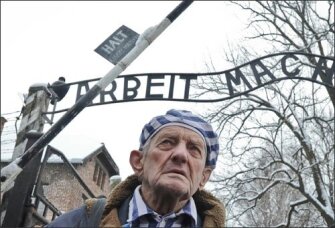
Yesterday marked the 70th anniversary of the liberation of the Auschwitz concentration camp, where about 1.1 million people, mostly Jews, were put to death during the Holocaust.
In commemoration, 25 teachers from across the U.S. and 10 other countries spent four days traveling through Poland, visiting museums and historical sites in Warsaw, Krakow, and Oswiecim. On Jan. 27, the teachers joined 3,000 people, including about 300 Holocaust survivors, for a ceremony at Auschwitz-Birkenau.
As the New York Times reports, about 1,500 Holocaust survivors attended the 60th anniversary of the camp’s liberation in 2005. The remaining survivors are in their 90s and some are older than 100, so this may be the last major anniversary with more than a handful of survivors present.
The teachers were part of a professional-development program hosted by Discovery Education and the University of Southern California’s Shoah Foundation. While touring, the educators learned to use the Shoah Foundation’s IWitness collection, an online instructional resource with 1,300 testimonies and multimedia activities related to the Holocaust. They also attended a reception with Steven Spielberg, who directed the 1993 Holocaust film “Schindler’s List.”
Jeannie Woods, a 7th and 8th grade language arts teacher from Fort Payne, Ala., who participated in the program, said in a phone interview from Poland that the trip helped illuminate for her the long history leading up to the Holocaust. “Coming to an authentic site and getting to experience the culture and visit museums that explore the history of that culture over hundreds of years, where[as] sometimes we start our Holocaust education with the Holocaust—that’s just really broadened my perspective on how the Holocaust fits into history,” she said.
As I wrote last month, some teachers are finding nontraditional ways to explore the Holocaust with their students. The U.S. Holocaust Memorial Museum, which runs professional-development programs for preservice and practicing teachers, currently has an exhibit dedicated to looking at onlookers’ motivations—why some European citizens helped the Jews, some harmed them, and some looked away.
Holocaust survivor Igor Malitsky of Ukraine walks outside the gate of the Auschwitz Nazi death camp in Oswiecim, Poland, on Tuesday. Some 300 Holocaust survivors traveled to Auschwitz for the 70th anniversary of the death camp’s liberation by the Soviet Red Army in 1945, down from 1,500 who attended the event 10 years ago.—Alik Keplicz/AP
